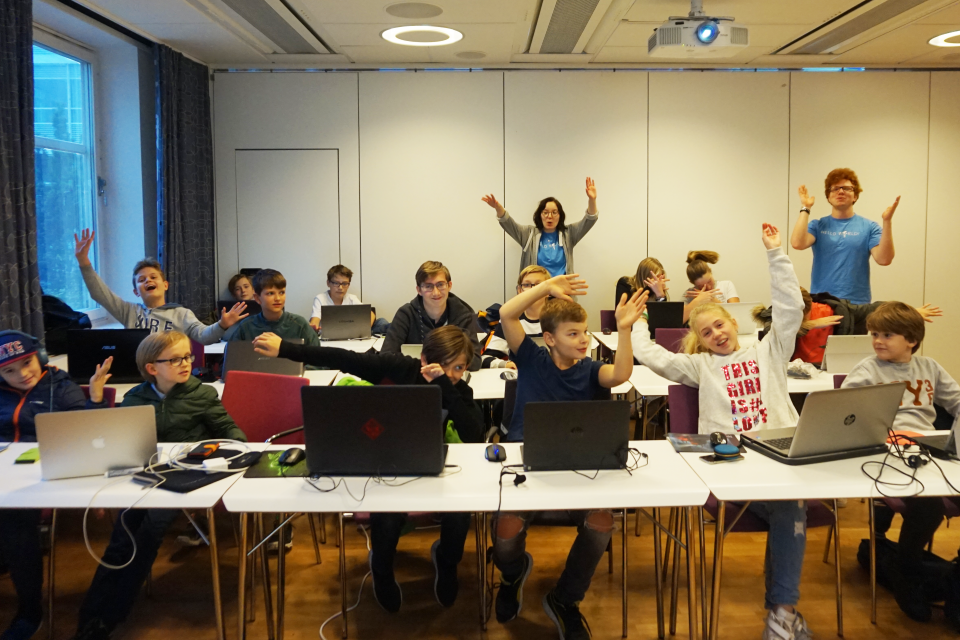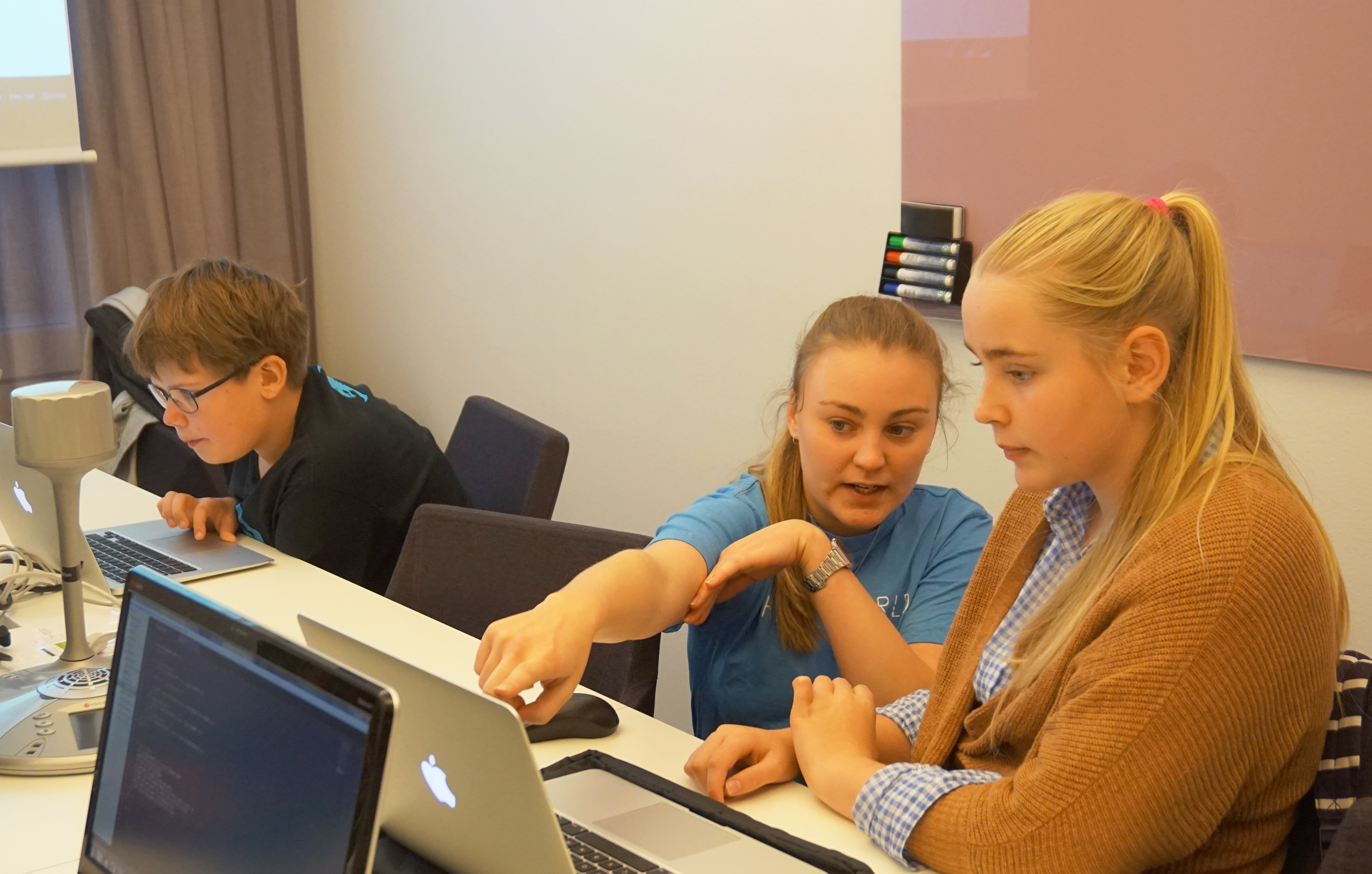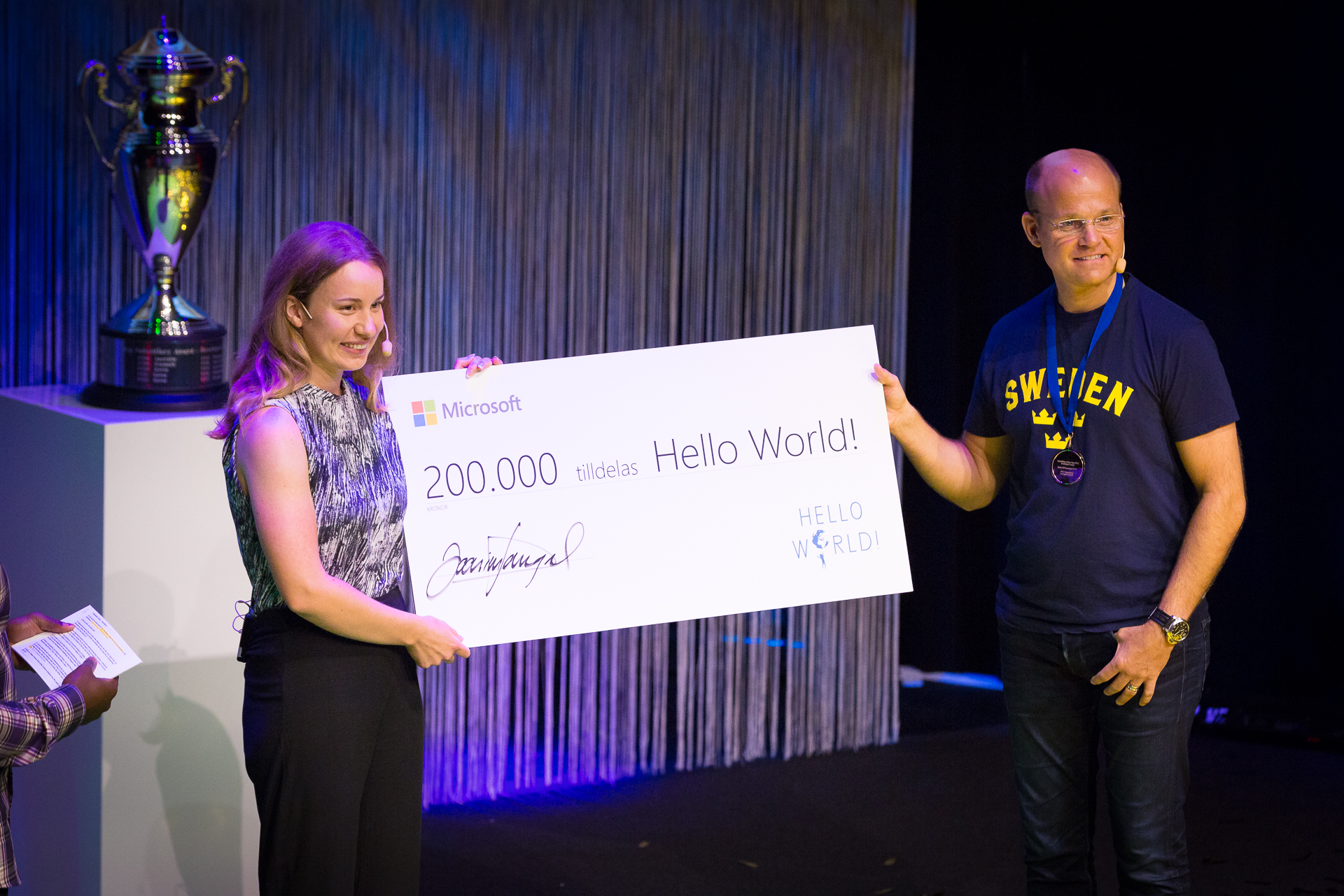When Dag Wolters and Ulrika Dellby failed to find any coding camps for their son in Sweden, they took matters into their own hands.
In 2016, they created Hello World! – a coding camp aimed at teaching children everything they need to start them on the rewarding journey of coding.
In one year, the programme grew from 383 members to 2,967. Currently it stands at 7,400 members-strong, with the aim of reaching an impressive 8,000 by the end of this year, with the ambition for girls to make up 50 percent of the attendants. The cost of the programme is also adjusted, depending on the income of parents, as Hello World! believes that all children have the right to learn how to code.
“Hello World! wants to find more ‘digital Zlatans’ – girls and boys who want to be stars of the future of programming,” Wolters explains. “Through Hello World! everyone will be able to learn more about, or deepen their knowledge in programming, regardless of their gender or socio-economic background.”
The emphasis on encouraging more young girls and women to participate is supported by recent research by Microsoft which shows that many young girls lose interest in science, technology, engineering and maths (STEM) subjects by the age of 15.
In Sweden, only one in five developers are women. Combined with the fact that by 2020 there will be an expected IT skills shortage of 60,000 professionals in Sweden, the need for a programme such as Hello World! is clear.
The next generation of coders
In addition to offering financial support in the form of a $25,000 Ready Awards Grant and loaning Surface devices to Hello World! Microsoft also offers up their Akalla-based office in Sweden for meetups and coding sessions. Over the spring, Microsoft hosted five meetups, with 120-150 children per session.
More recently, on 8 October, a total of 114 children (44 girls and 77 boys) attended Microsoft’s Akalla office for the most recent meetup.
Falling at the beginning of Europe Code Week, the session saw 20 teachers (students from the Royal Institute of Technology in Stockholm and previous Hello World! members) carry out a number of sessions introducing the participating children to coding. The sessions included an introduction to block programming, CAD for beginners, 3D modelling, web design, an introduction to Python, and more.
“With the help of Microsoft scholarships, we can reach more children and young people and light digital stars all around Sweden. The scholarships will be directed towards young people living in exposed areas in Sweden,” says Sara Danielsson, campus director and board member at Hello World!
For more information, please visit Hello World!






